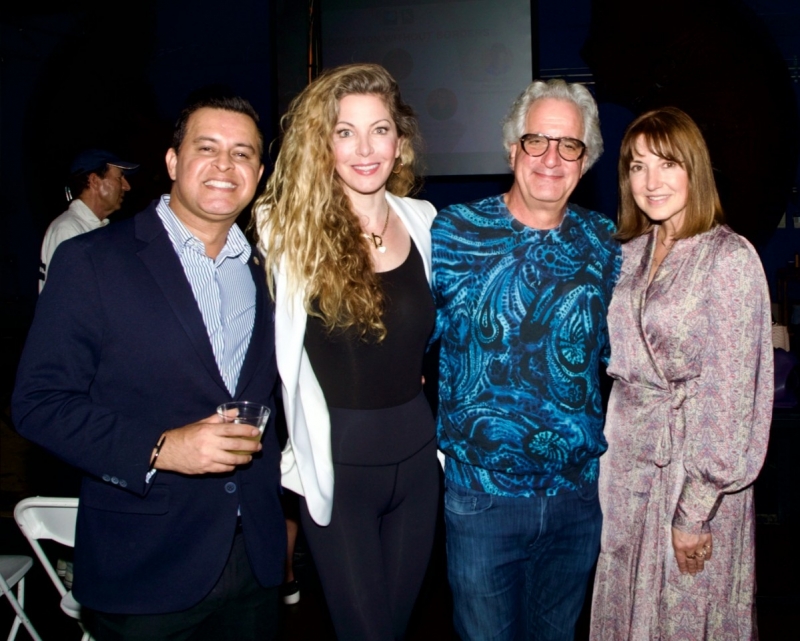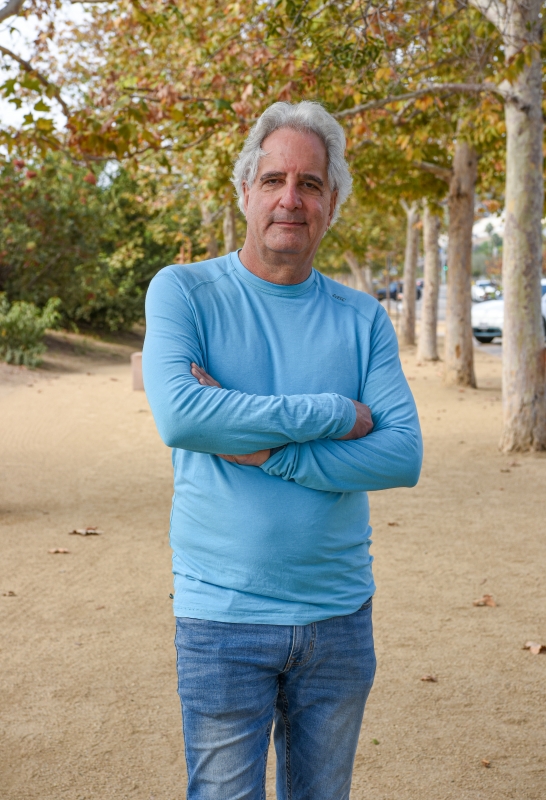|
|
|||||||||||||||||||||||||||||
|
Pro Tools
FILMFESTIVALS | 24/7 world wide coverageWelcome ! Enjoy the best of both worlds: Film & Festival News, exploring the best of the film festivals community. Launched in 1995, relentlessly connecting films to festivals, documenting and promoting festivals worldwide. We are sorry for this ongoing disruption. We are working on it. Please Do Not Publish until this message disappears. For collaboration, editorial contributions, or publicity, please send us an email here. User login |
American Film Market DailiesFilmfestivals.com will be covering AFM 2023 running November 31 October - 5 November, 2023 Contact us for advertising options Every Fall, the Global Film Industry Converges in Santa Monica: Filmmakers, producers, directors and writers from around the world come to AFM to gain exposure, discover new projects and make deals. The American Film Market & Conferences is the largest motion picture trade fair in the world. 2024: November 5 – 10 Circulation of our newsletter 165 000 subscribers I Facebook AFM Photo Gallery I Twitter I Youtube videos Our AFM Newsletters run each day with a bumper pre roll editions and a wrap edition:
 Quotes from The Producing Studio films with Independent budget PanelPRODUCING STUDIO FILMS WITH INDEPENDENT BUDGETS (9.15am) Paul Hanson
CEO, Covert Media
“In today’s marketplace, there are lots of alternatives that will allow you to build an interesting distribution model across some of these up and coming streaming platforms.”
“There’s a dynamic nature to pre-sales. At any point in time, this dynamic can change.”
“10 years ago, you could have a B/B- grade film, but if you had the right star, you could open the film with good numbers. Now, you can have a big star and a big movie, but if the movie isn’t good and the rating online is bad, then it’s over for that film. We’re constantly seeing bombs at a studio level.”
“Stretching the dollar is becoming more and more important. There are certain things you should never skimp on though, like safety. But there are corners you can definitely cut. Take advantage of production incentives – that can be very important. Quite often, these incentives can sound great but there’s a lot of fine print in doing it, so be careful.”
“When making your film, you need to have a thought process. What are you making? Who’s going to watch it and how do you get it to them? You must have a plan.” Ben Stillman
SVP, Black Bear Pictures
“From a producing standpoint, it’s about making a film at the price that allows you to achieve your creative vision. You need to make sure you’ve made the best film, for the least amount of money. The script is where it all starts, and having an exciting filmmaker helps. You want to find someone who has a great original voice.”
[About raising capital for a $1 million film] “It’s all about having a great script. A great script opens a lot of doors. The genre also needs to be taken into account.”
“Your Director and stars set the tone – cutting costs comes from the top up. If they’re really passionate about the film, everything then follows that lead.”
“At an independent level, what we look for are stories that feel like they’re contributing to the cultural conversation or are unique enough that people are going to be engaged to see these films. You need to ask yourself - is this story, world, film going to be dynamic enough that people are going to spend their money to see it?” Rebecca Cammarata
Director of Development, Stay Gold Features
“People are talking less and less about the value of cast. It’s more about the talent’s story. You don’t have to have a massive star, but if there’s a way you can sell this person to people in the marketing of the film, then that’s a great thing.”
“When we took on Patti Cake$, the film had no big names attached. But we had someone involved who believed in the project enough, someone who really saw something in the script.”
“It’s hard to predict what films are going to transcend from a festival to an everyday audience. You have to take those risks.”
“You’ve got to balance your gut feeling on the IP with the financial risks.”
“Having a filmmaker who is willing to make sacrifices is important. Having someone who can make compromises along the way, for the sake of the story, is huge.”
Russell Levine
CEO, Route One Films
“It’s actually the studios failing the independent film industry not Netflix!”
“If you have incredible material, you’re going to attract somebody powerful. It could be a good actor, director and/or producing department.”
“I think you should go for the best acting talent, and disregard how famous you think they are. It’s all about finding the right actor and not worrying so much about how famous they are. In most cases, it doesn’t matter really anymore.”
“One of the strongest things you can do is get a good mentor who has a lot of experience. For instance, if you can get another producer on board that has the stature of getting final cut, then you’ve got a much better chance of getting your film made.”
“There is a huge market out there for high-quality films in the under $3 million range, so having that producing expertise in your team is incredibly important.”
“All of our films have been made with a list of impressive talent because we were getting involved in projects that were semi packaged already.”
THE PASSION OF THE FILM: REACHING THE FAITH COMMUNITY (10am)
DeVon Franklin Producer & CEO, Franklin Entertainment
[In reference to studio vs independent films] "It still goes back to the story and who's the audience. The thing about films that I'm doing, they're actually a little bit easier to push from the system because you know who you're going towards and you know where your audience is and how to target them. There's a business that's been proven to be successful, so over the years it's become slightly easier and people around town to recognize that there is an opportunity here."
"Traditional Hollywood is not working as well as it once was and everyone is trying to figure out what's working now. Back when I started, you could make a movie and it would be for everybody, but now when you look at the impact of having so many other options to view content, you have to rely on the studio to really identify even before we make a film, who it’s for and do they want to see what we're getting ready to make? And if they do, what's the cost to make it?"
"In terms of the future of Bible stories, I think the thing at least in my heart is when you look at the Bible, the Bible has violence, adultery, sex, murder. If the Bible was rated, it would be NC-17. And the reason why it's so powerful is because in the storytelling, no punches were pulled. You can see the impact of virtue and you can also see what happens when you act on vice. So I think the future is how do we still pull from the power of the storytelling in the Bible and apply it to whatever stories we're called to tell.”
“My hope is that as we continue to expand in this space, we continue to create more room for movies that can still be uplifting and inspiring, yet they can still be told in the truth in which they need to be rendered."
Kevin Downes Producer & President, Kevin Downes Production & South West Film Group
"No matter what angle a movie comes in at us, we will do a deep dive into what that story is and if there is a story that makes sense and resonates with us. We internally will ask 'Will anybody care? Does the audience care whether or not this story is going to be told?'"
"Hollywood is all of a sudden shifting and migrating all the way up to Silicon Valley because there is so much money and expansion going on up there."
"As producers of content, we have to learn to adjust to the landscape as it shifts."
[In regards to "the Christian light or a robust story"] "Right now it's all about the story, so we're not trying to have this or that or the other, I mean, if it's a part of the story and it's organic, it will play itself out."
"When we had discussions about I Can Only Imagine, it was never about more or less of anything because that's already been proven that people will go see a movie if the story is relatable and organic."
David Austin EVP, Bridgestone Multimedia Group
[Does digital become a driving factory] "I think digital is actually broadening the type of content that we'll consider. For instances, in the past, we've really looked almost exclusively at narrative feature films, but in the digital world there's a need for shorter content, for episodic content, which we would've turned down quickly five years ago, but now it gets our attention."
[Standards applied that are most important for an audience of producers] "Story first and most certainly cast is becoming more and more important even within the small genre that we reside in."
"The biggest thing is knowing who it is you are targeting with that film. Who do you want to have watch it? What do you want to have the film do? Are you doing a film from a missional standpoint or are you doing the film from a commercial standpoint? What end result do you want? So if you have somebody targeted, what is it that they want and then backtrack and make the film with that end in mind."
[A market for DVDs?] "There's some, but it's rapidly decreasing and even in the windowing of the release of a product, we are gearing ourselves towards digital. That'll vary by project. We are really preparing ourselves for the day that's not too far away where the DVD is gone, so we'll take what we can get at this point."
Rick Bonn Head of Development & Acquisitions, Pure Flix Entertainment
[subscription-based vs. transaction-based] "Part of the problem starting out with one of these is that customers want A-level content and if they can get it in Netflix, Amazon Prime - and they will - if they can't get it there then they will have to come to you - so a lot of the faith-based that have started up haven't had any A-level titles."
"The distributor has to feed the beast, so we can't do it all, so we need you and your projects and vision."
[How do you decide which true stories you want to tell?] "I would just say discernment about what true stories you want to tell because we're saturated in the culture of true stories, so don't just see them as 15 second spots, you'll see them as true stories - someone's gotta care.”
“Your true stories have to compete on a global level. That's why we're here at AFM - this is a global audience, so if you have a true story go after it, but discern if this isgoing to matter to the world?"
06.11.2017 | American Film Market Dailies's blog Cat. : PEOPLE
|
LinksThe Bulletin Board > The Bulletin Board Blog Following News Interview with EFM (Berlin) Director
Interview with IFTA Chairman (AFM)
Interview with Cannes Marche du Film Director
Filmfestivals.com dailies live coverage from > Live from India
Useful links for the indies: > Big files transfer
+ SUBSCRIBE to the weekly Newsletter DealsUser imagesAbout American Film Market Dailies Prewitt Jean Prewitt Jean (IFTA) The AFM is not a festival - it is the largest motion picture market in the world. 8,000 industry attendees, including producers, distributors, directors, agents, writers, lawyers & bankers. Over 540 films screened, most world or U.S. premieres.
$US3 Billion spent annually by participants to produce films
8,000+ industry professionals
2,000+ new films and projects
1,000+ production companies
400+ distributors
540+ films screened
100+ world premiers
70+ countries represented
50+ thought leaders speaking
7 days of networking activities
1 beachfront campus that covers it all
Our AFM Newsletters run each day with three bumper pre roll editions and a wrap edition: 2018 FULL HIT STORY TOLD IN 8 EPISODES Pre roll newsletter N° 1 AFM 2017 Wrap & global I N°8 I N°7 I N°6 I N°5 I N°4 I OPENING N°3 I Preview N°2 I N°1 AFM 2016: Pre roll N° 1 I Pre roll N° 2 Opening Newsletter N°3 I N°4 I N°5 I N°6 Focus on ANIMATION I N°7 I Final wrap
View my profile Send me a message My festivalThe EditorUser contributions |
|||||||||||||||||||||||||||
























.jpeg)

.jpg)





